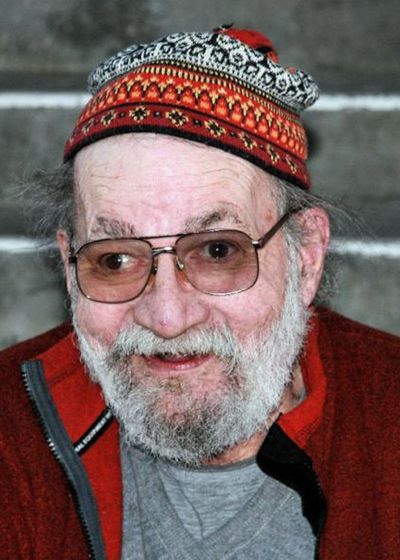Anti-smoking program gets gift in memory of N. Idaho man

Shirley Wagoner remembers her big brother sneaking out to the woods behind their St. Maries home when he was a teenager to smoke cigarettes.
“In the ’50s, it was cool,” she said. “It meant you were grown up.”
Her brother, Dick Case, finally managed to quit 10 or 15 years ago, but by then it was too late, she said. Case, a substance abuse counselor and poet who lived in the Coeur d’Alene area, died Jan. 8 at age 74. He blamed smoking for killing him, Wagoner said.
Three days after his memorial, a friend of the family stopped by the Panhandle Health District in Hayden with a plastic bag containing more than $500 from Case’s sister and daughters. Wagoner said the family also offered volumes of Case’s poetry at his memorial service for a voluntary donation and added that money to the pot. The money was donated to the district’s Smoking Cessation and Prevention Program.
“I think he would have been pleased if he could have helped one person quit smoking,” said Wagoner, who lives in Spokane Valley. “If just one person could quit smoking because of his death then that’s a good thing.”
The money comes at a good time, because funding for the program has declined, said Cynthia Taggart, a health district spokeswoman. The roughly decade-old program is funded by the federal Centers for Disease Control and Prevention and by the Idaho Millennium Fund, established by the Legislature in 2000 to disburse money from the massive national settlement with tobacco manufacturers.
Linda Harder, a health educator, said cessation programs last year received $66,200 from the Millennium Fund. This year, the programs were only funded through June 30, with $35,300. The CDC grants also have decreased, she said. She acknowledged, however, that state Legislature funding decisions are pending. “If we end up with no funding, that’s going to be very hurtful,” Harder said.
Last year, the health district helped 51 teenagers and 37 adults quit smoking, in addition to helping dozens reduce their tobacco use. It also helped 16 pregnant women and young mothers stop using tobacco. The program offers free four-week smoking cessation classes year-round. The classes cover nicotine addiction, battling withdrawal symptoms, stress management techniques, nutrition and exercise tips and other services, including free individual consultations.
Wagoner said her mother lived to 91 and she feels certain her brother would have lived another 15 or 20 years if he hadn’t smoked. Case died of chronic obstructive pulmonary disease.
“It’s an awful way to die because he couldn’t breathe,” she said. “He would say, ‘I’m like a fish out of water.’ ”